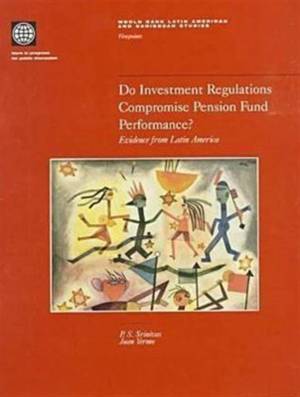
- Afhalen na 1 uur in een winkel met voorraad
- Gratis thuislevering in België vanaf € 30
- Ruim aanbod met 7 miljoen producten
- Afhalen na 1 uur in een winkel met voorraad
- Gratis thuislevering in België vanaf € 30
- Ruim aanbod met 7 miljoen producten
Zoeken
Do Investment Regulations Compromise Pension Fund Performance?
Evidence from Latin America
Pulle Subrahmanya Srinivas, Jua Yermo
€ 33,45
+ 66 punten
Omschrijving
'Draconian' regulations have created distortions in asset management, limited opportunities for diversification, and, as a consequence have hampered, the performance of pension funds. This volume shows that the return to retirement assets, expected replacement rates, and, hence, the net welfare gain from pension reform is lower under a draconian regulatory framework than under a more liberal pension fund investment regime. Important policy conclusions of the paper are that existing regulatory regimes should be liberalized as soon as possible to allow pension fund investments in a wider array of financial instruments and that regulations should require evaluation of pension fund performance against market benchmarks as opposed to exclusive focus on comparisons with industry averages. The paper also suggests a review of the current structure of the private pension fund industry in Latin America and an evaluation against alternatives in the light of actual performance experience.
Specificaties
Betrokkenen
- Auteur(s):
- Uitgeverij:
Inhoud
- Aantal bladzijden:
- 53
- Taal:
- Engels
- Reeks:
Eigenschappen
- Productcode (EAN):
- 9780821344880
- Verschijningsdatum:
- 1/05/1999
- Uitvoering:
- Paperback
- Formaat:
- Trade paperback (VS)
- Afmetingen:
- 210 mm x 273 mm

Alleen bij Standaard Boekhandel
+ 66 punten op je klantenkaart van Standaard Boekhandel
Beoordelingen
We publiceren alleen reviews die voldoen aan de voorwaarden voor reviews. Bekijk onze voorwaarden voor reviews.











